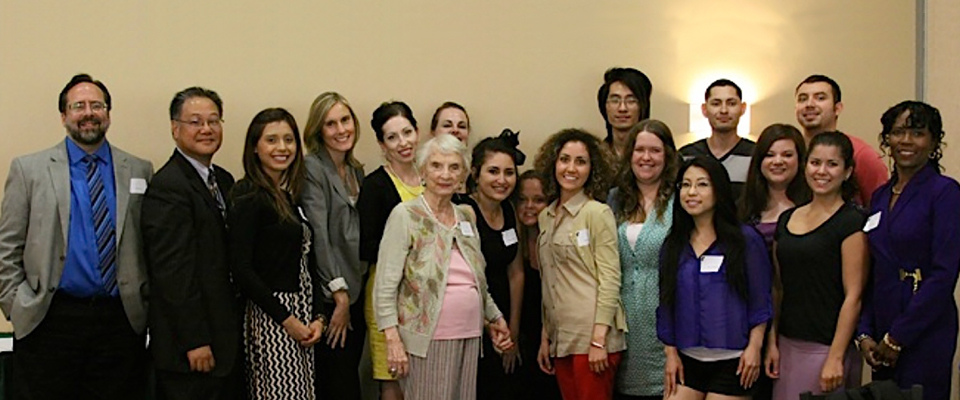Program Description
Welcome!
Thank you for your interest in our Master of Science (M.S.) in Psychology program. This program is designed to prepare you for the Marriage and Family Therapy (MFT) license in the State of California. MFT licensure is administered by the California Board of Behavioral Sciences (BBS). Our program meets all the requirements set forth by the BBS and is approved by the Western Accreditation of Schools and Colleges (WASC).
For more information about MFT licensure requirements in California, click here: MFT Licensure Requirements
Marriage and Family Therapy (MFT) is a form of psychotherapy or counseling that addresses the behaviors of all family members and how these behaviors affect individual family members, the relationships between family members, and the family unit as a whole. Students in our MFT program will learn the basics for how to conduct individual therapy, couple therapy, family therapy, and child/adolescent therapy.
More specifically, we hope that students in our program will learn:
- How to develop a therapeutic alliance with clients
- Theories and techniques for working with children and adolescents
- How to identify and report child abuse
- Theories and techniques for working with couples
- Knowledge about sexual disorders and dysfunctions and techniques for how to intervene
- Theories and techniques for working with families
- How to identify and report elder and dependent adult abuse
- How to identify and intervene with intimate partner violence
- Theories and techniques for working with groups
- Knowledge about the biological and neurological bases of behavior
- Knowledge about how drugs, alcohol, and psychotropic medications affect behaviors
- How to formulate diagnostic impressions regarding mental disorders using the edition of the Diagnostic and Statistical Manual of Mental Disorders (DSM)
- How to understand major psychological tests that measure intelligence, personality traits, psychological symptoms, and other matters relevant to psychological assessment
- How multicultural and gender issues relate to theories and intervention strategies of psychotherapy
- Professional ethics and laws that relate to the practice of psychotherapy
- How to maintain professional boundaries and separate out one's own issues from those of one's clients
- An openness and responsiveness to supervision and other forms of feedback
- Other issues relevant to being a mental health professional
Program Requirements
For a more detailed description of the program requirements and courses offered, please visit our program page in the Cal Poly Pomona Catalog.
What Stands Out About Our Program?
We believe—and feedback from our students, alumni, and community partners confirms—that one of the strengths of our program is our commitment to diversity, equity, and inclusion. Our faculty come from a variety of backgrounds and represent diversity in terms of race, ethnicity, country of origin, age, gender identity, language, sexual orientation, and spiritual belief systems. When admitting students to the program, we make a concerted effort to maintain this type of diversity in each cohort.
Cal Poly Pomona is also officially designated as a “minority-serving institution” and a “Hispanic-serving institution.” Cal Poly Pomona is a “majority-minority” campus where the student body primarily consists of Students of Color. Cal Poly Pomona demonstrates it’s commitment to diversity, equity, and inclusion in their mission statement, their philosophy, the curriculum, and in student support services. As a program, we are grateful for Cal Poly Pomona’s commitment to these issues.
We also demonstrate our commitment to diversity, equity, and inclusion, in our curriculum and clinical training. Multicultural issues are infused into every course, with one entire class dedicated to the topic (PSY 5575, Cross-Cultural & Gender Issues in Therapy & Recovery Model). Most practicum sites on our approved list afford students the opportunity to gain clinical experience working with diverse and underserved communities. Multicultural competence is an ethical imperative for mental health professionals, and we do our best to help students build multicultural knowledge, awareness, and skills.
